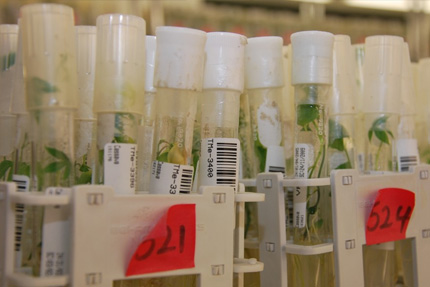
Recent developments in the life sciences pose compelling questions about the relationship between the culturing of life and the culturing of value. In the early 1980s, the expansion of patent law to cover biological inventions and incentives for venture capital investment in biotechnology opened up a highly experimental era of life science research that has continued till this day. During this period, life science research became ever more closely attuned to the dynamics of value-creation in financial markets, as large pharmaceutical firms and small-scale biotech start-ups alike respond to the demands of venture capital firms, institutional investors and share-holders. In the meantime, exchange economies in biological tissues have proliferated as growing numbers of individuals participate in assisted reproductive medicine services and research institutions become ever more reliant on the resources of tissue banks. The growing entanglement of life science research and market economies unsettles the established categories of political economy and poses far-reaching questions about the relationship between biological matter, capital and value.
The rapid expansion of life science markets appear to both reinscribe and displace the traditional fault lines of colonial science. During the past decade or so, pharmaceutical clinical trials have rapidly offshored, moving from the United States and Western Europe to the newly liberalized economies of Latin America, the former Soviet Union, China, India and South-East Asia. Markets in reproductive tissues have also taken on an increasingly transnational form, as “intending parents” from the United States, Australia and Western Europe travel to the less regulated or cheaper destinations of the world to find eggs, sperm and surrogates. These experimental and reproductive economies have evolved in response to the internal restructuring of the late liberal, post-colonial state, engendering new circuits of embodied low-wage service work, even while the newly ascendant economies of China and India are wagering on biomedical innovation to liberate them from their current reliance on labour-intensive export production.
What is now referred to as the field of “global public health” has also undergone significant changes as the influence of multilateral institutions such as the WHO has been rapidly eclipsed by the emergence of philanthropic organizations such as the Gates Foundation and a panoply of private-public partnerships dedicated to the development of new antimicrobial drugs. This new constellation of forces has redefined the field of public health and invigorated commercial interest in the long-neglected market for infectious disease, in what marks a paradoxical return to the classic geographies of tropical medicine. In the meantime, the bitter conflicts over patent law and HIV/AIDS drugs that marked the turn of the 21st century have been somewhat mitigated by the arrival of mass treatment programmes such as the UN’s Global Fund and the US President’s Emergency Plan for HIV/AIDS. These programmes, however, have generated their own controversies, most notably around the export of faith-based and abstinence-only public health strategies from the US.
Postcolonial science delves into the future and the past to prospect for unrealized sources of value, discovering a renewed interest in the contents of colonial archives, tissue and blood collections and looking to the patentable promise of future biotechnological interventions to remediate enduring humanitarian or ecological failures. In so doing, it both reanimates and transforms the colonial archive, provoking questions about the enduring power relationships that structure the space of global science.
In recent years, a series of studies have proposed the concepts of biocapital, surplus life and biovalue as a means of understanding the contemporary imbrication of life science research and market economies (Franklin and Lock 2003; Parry 2004; Sunder Rajan 2006; Rose 2007; Waldby and Mitchell 2007; Cooper 2008). Earlier this year, a group of established and emerging scholars participated in a workshop to interrogate the relationship between science, labour and value. We include extracts from some of the workshop papers here, as well as a full podcast of Catherine Waldby’s talk. The workshop was partially sponsored by the Journal of Cultural Economy and papers from the workshop will be featured in a forthcoming issue of the journal on “In Vivo Economies.” Also featured will be an interview with leading theorist of biocapital, Kaushik Sunder Rajan, conducted by Melinda Cooper.
[soundcloud url=”https://api.soundcloud.com/playlists/13874261″ width=”100%” height=”450″ iframe=”true” /]
Acknowledgements
Photo from IITA Image Library is of tissue culture-grown cassava in a gene bank in Ibadan.